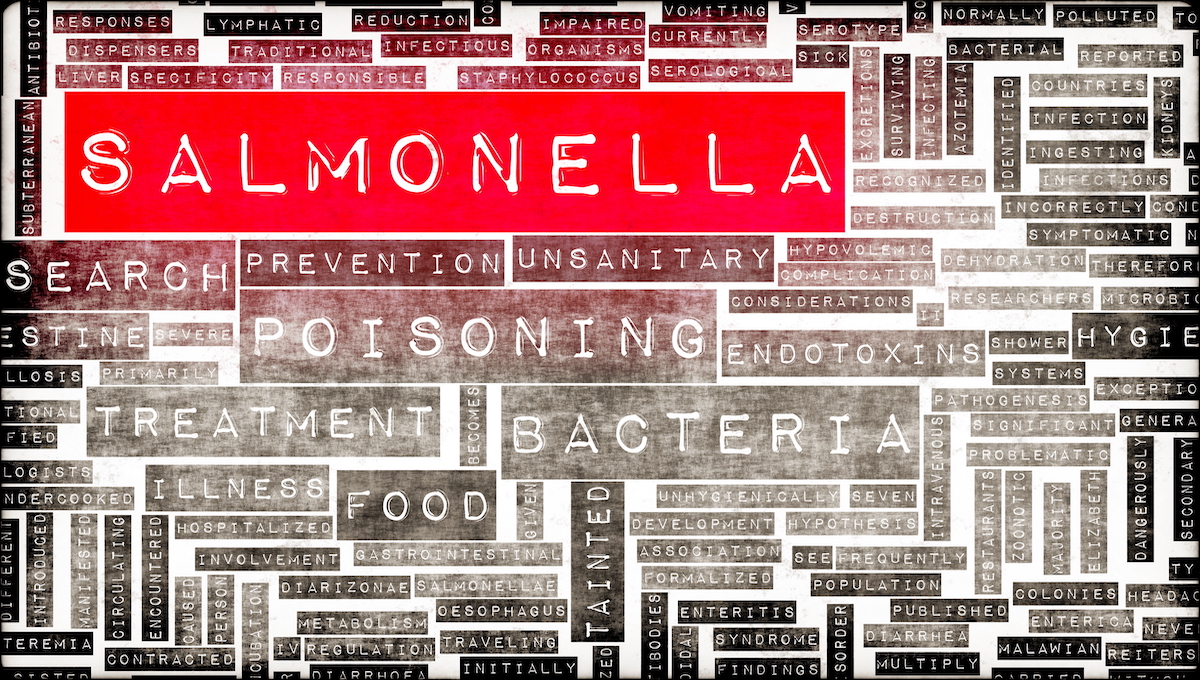Shiga-toxin producing E. coli and Salmonella both caused six outbreaks last year in Scotland, according to figures from Health Protection Scotland.
Data comes from ObSurv, a surveillance system established in 1996 for general outbreaks of infectious intestinal disease in the country. It does not include those where infection is thought to have been acquired overseas.
The six outbreaks of Shiga-toxin producing E. coli (STEC) in 2018 were due to three different serogroups; three were O157, two were O145 and one was O26. A total of 22 people were affected with three outbreaks recording five cases. A source was not found for any of the outbreaks.
The total is comparable to the number of outbreaks in 2013 to 2017, when there was an average of five and a range of three to nine per year.
In five outbreaks the main mode of transmission was foodborne and in the sixth it was a combination of foodborne and person to person.
Since August 2017, whole genome sequencing of all STEC isolates has been routine practice in Scotland.
Earlier, Health Protection Scotland revealed Shigella and norovirus increased but Listeria, Hepatitis A and E declined in 2018. The agency also published a report on lab-confirmed travel-related infections in Scotland.
Salmonella outbreaks
There were six outbreaks of Salmonella in 2018 involving five different serotypes; two of Salmonella Enteritidis, and one each of Salmonella Typhimurium, Salmonella Agona, Salmonella Newport and Salmonella Bovismorbificans. Five of the outbreaks had a foodborne source.
This total is comparable to the number of Salmonella outbreaks from 2013 to 2017, with an average of four and a range of two to seven per year.
One of the Salmonella Enteritidis outbreak was associated with consumption of eggs from Poland and is part of a wider European outbreak.
An outbreak of Salmonella Newport affected six people linked to an imported unpasteurized goat’s milk cheese from France. The source was not found for the Salmonella Agona outbreak which affected eight people and the Salmonella Bovismorbificans incident with five ill.
Since October 2017, whole genome sequencing of Salmonella isolates has been routine practice in the country.
Although Campylobacter is the most common bacterial cause of infectious intestinal disease, no general outbreaks were found in 2018. This follows the trend in recent years with one outbreak in each of 2012 and 2014, and none in 2017, 2016 or 2015.
During 2018 one general outbreak of norovirus with 60 patients was reported in which food was a possible factor along with person to person transmission.
Two outbreaks of Cryptosporidium were recorded in 2018, which is comparable to the previous five years. Mode of transmission in one was considered to be waterborne and the other was due to person to person transmission.
There were no general outbreaks of hepatitis A in 2018 compared to two such incidents in 2017. There were also no outbreaks of Scombrotoxin poisoning this past year with the last outbreak reported in 2013.
Creation of Public Health Scotland
Meanwhile, the Scottish government recently closed a consultation on plans to create a new national public health body, to be known as Public Health Scotland. The organization will launch in April 2020.
Health Protection Scotland (HPS) currently performs the health protection role in the country. HPS is organized into three specialist groups including gastrointestinal and zoonoses, travel, and environmental public health.
HPS functions transferred to Public Health Scotland will include surveillance; expert advice and horizon scanning; effective preparation and response to outbreaks and incidents; monitoring quality and effectiveness of health protection services and support for commissioning specialist/reference lab services.
Public Health Scotland will become responsible for implementing health protection programs and policies, such as public communication and advice on health protection issues and coordinating national health protection response to incidents requiring Scotland-wide action.
The Scottish Health Protection Network will still be supported to evaluate and characterize the epidemiology of communicable diseases in Scotland; and strategies to reduce incidence, using surveillance data and evidence based intelligence and investigating and managing outbreaks of communicable disease to limit impact on public health.
Gerry McLaughlin, NHS Health Scotland chief executive, said Public Health Scotland can be effective in protecting and improving the health of people in the country.
“Not only will it drive the delivery of public health priorities through better integration between local and national partners, but it will help us to increase the reach of our practical and professional advice to the public. We believe that Public Health Scotland has a distinct national role in supporting communities to participate in decisions that affect their health and wellbeing.”
(To sign up for a free subscription to Food Safety News, click here.)

